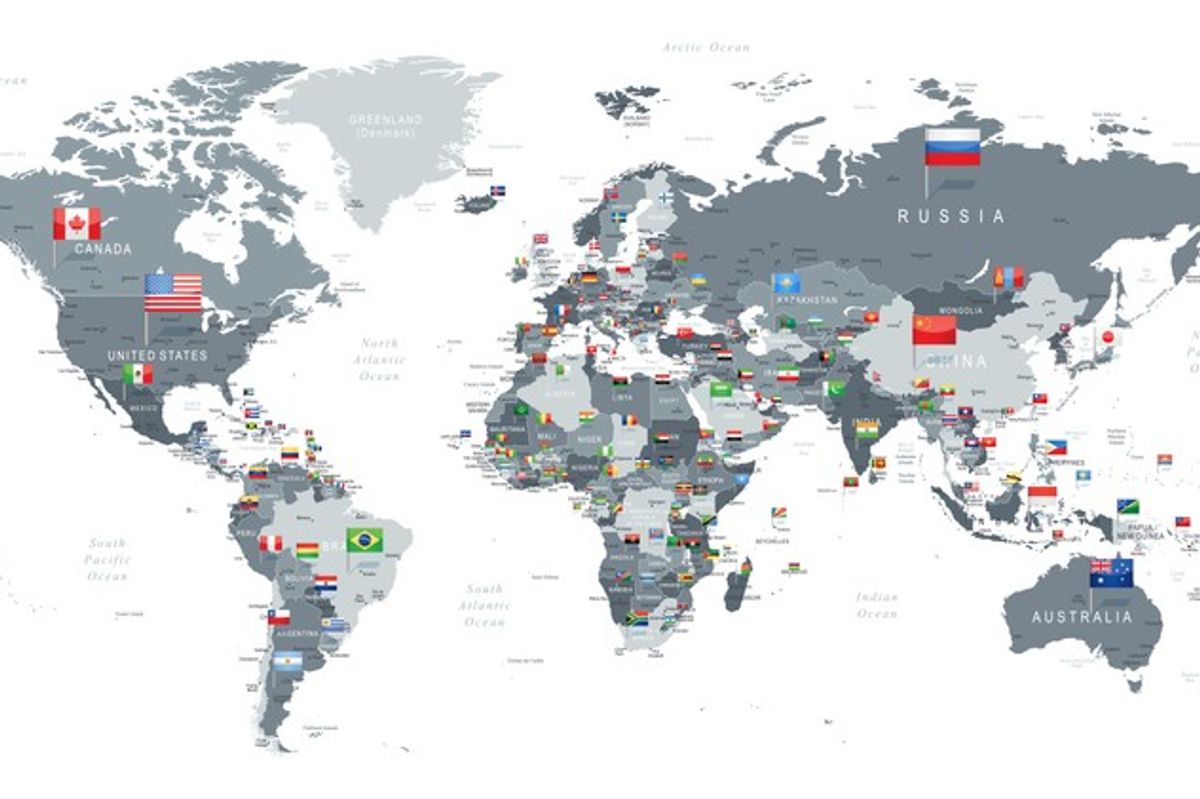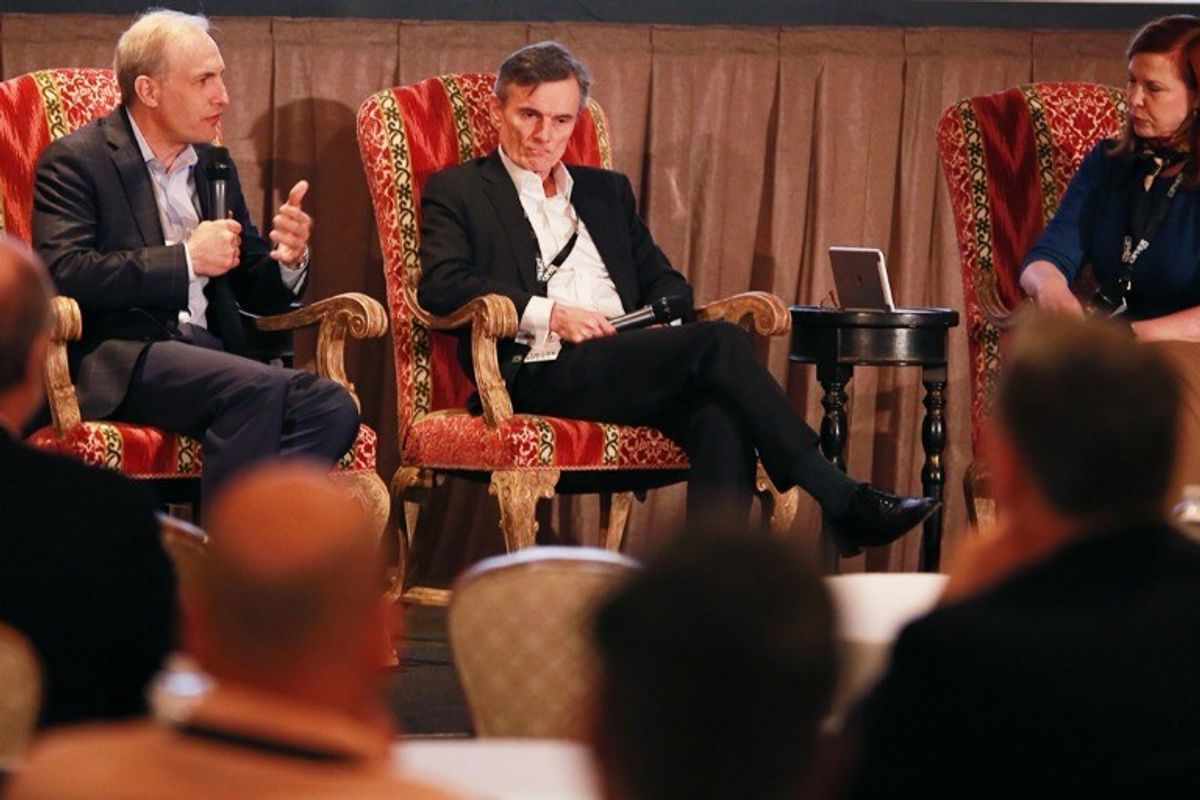British Prime Minister Theresa May had hoped to have an ironclad majority in parliament that would bolster her negotiating position in upcoming Brexit talks. That hope was dashed by the results of last Thursday’s elections, during which the Conservatives lost 13 seats, along with their parliamentary majority.
This upset has thrown British politics into disarray just as the country prepares to negotiate its most important international agreement since World War II. Those talks are scheduled to begin in earnest on June 19 when British and EU negotiators start to tackle the highest priority issues surrounding Britain’s withdrawal from the European Union, such as the proposed payment of a 62 billion Euro “Brexit bill” to cover UK obligations to the EU budget.
However, beyond these headline grabbing issues lie a host of individual bilateral disputes between Britain and each of the remaining 27 EU countries, which threaten to complicate the Brexit process even further. Spain, for instance, has already sought to include its claims to the British territory of Gibraltar in Brexit negotiations. As Prime Minister May scrambles to patch together a coalition government and project a unified negotiating position, how will such bilateral pitfalls trip up British negotiators in the talks ahead?
While Gibraltar has garnered the most attention – due partly to former Tory leader Michael Howard’s incendiary suggestion that Britain might go to war with Spain over the territory –other areas of friction include the Touquet Treaty with France, which controls immigration from France to the UK through the port of Calais, and the question of post-Brexit fishing rights with France, Belgium, Spain, and the Netherlands. Greece may even decide to bring up the Elgin Marbles – a collection of sculptures removed from the Parthenon by the British Earl of Elgin in 1812.
Charles Grant, Director of the Centre for European Reform, doubts that these kinds of issues will take precedence in the near future. According to him, “Gibraltar has the potential to cause big problems” because the Gibraltar airport is in Spanish territory, which will give them leverage over the UK in shaping a post-Brexit aviation agreement with Europe. However, Grant thinks that UK and EU negotiators will be far more focused on “the three real issues for Article 50 talks:” the rights of EU citizens in the UK, the issue of British exit payments to the EU budget, and the question of a hard border between Ireland and Northern Ireland.
Yet, when it comes to hammering out a post-Brexit trade agreement, bilateral spats could become a real sticking point for British negotiators. Unlike the Article 50 divorce agreement, which need only be approved by a “qualified majority” vote of EU member states, a post-Brexit trade agreement must be accepted by all 27 members and ratified by each country’s parliament. This means that the UK will probably have to tailor a deal to individual countries’ demands or risk leaving the EU without a new framework for relations with its largest market. That, says Grant, would be “catastrophic for the UK.” This kind of clean break would not only revive trade barriers with EU, it could also remove Britain from European regulatory agencies for things like aviation and pharmaceuticals, shutting down flights to the EU and preventing medicinal exports.
Whether it is easing restrictions on Polish coal, making a deal with Luxembourg to prevent them from trying to block Euro-clearing in Britain (currently, almost 90 percent of Euro transactions go through London), or ceding fishing rights to Belgium, Britain will find itself forced to negotiate its new arrangement with Europe on both a multilateral and bilateral level. Simeon Djankov, a former Bulgarian Minister of Finance, says that these requests will surface slowly at first, but he believes that “by October or November nearly every country will bring some kind of bilateral issue to the discussions.”
The EU-Canada Comprehensive Economic and Trade Agreement (CETA) provides a good example of how this could play out. Romania, Bulgaria, and Cyprus stood firm against the free trade pact until Canada made bilateral concessions to each country, while the tiny Belgian region of Wallonia threatened to scuttle the entire deal last year over popular opposition to free trade. “This same thing is going to happen to the UK,” says Djankov, “but it won’t be three or four countries that they have to deal with bilaterally, it will be 20 countries.”
Navigating this tangle will take an enormous amount of time and resources, and will probably drag negotiations out for years after the two-year Article 50 window has closed. This means that the British will also need to work out a transitional agreement with the EU to cover the gap between the end of the Article 50 process and the effective start date of a new free trade agreement. “The problem,” says Grant, “is that the EU will set a very difficult price for such transitional arrangements.”
Especially after Thursday’s election results, it is difficult to tell how London will now approach EU negotiators. Theresa May has already softened her previously “hard” Brexit negotiating position and told her team to prepare a “big, generous offer” on European citizen’s rights in the UK as an opening gesture to their EU counterparts. However, it is not yet clear that May will be able to survive as prime minister, even if she can cobble together a ruling coalition with the minority Northern Irish Democratic Unionist Party. If she does survive, says Grant, she will need to reinvent herself as “the champion of a soft Brexit” and prepare herself and the British people for a long and rocky road ahead.
—
View our expert commentary on this topic:
In Brexit, EU Holds the Cards by Charles Grant, Director of the Centre for European Reform
Bilateral Disputes Could Derail Brexit by Simeon Djankov, former Deputy Prime Minister and Minister of Finance of Bulgaria
Fritz Lodge is a Middle East and international economic analyst at The Cipher Brief. You can follow him on Twitter @FritzLodge.












